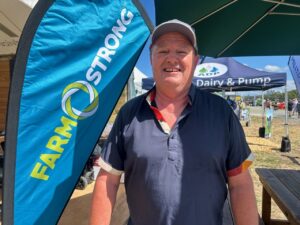Playing The Long Game – Maungatapere kiwifruit grower Mike Crum has spent a lifetime in the industry. Here’s what he’s learnt about navigating its ups and downs.

Playing The Long Game
Maungatapere kiwifruit grower Mike Crum has spent a lifetime in the industry. Here’s what he’s learnt about navigating its ups and downs.
Tell us about your operation.
We grow organic gold kiwifruit. While we still own the orchard, my daughter and son-in-law have taken over what used to be my business—a management company overseeing about 15 orchards and they manage our orchard.
How did you get started?
I began my journey in horticulture at the age of 15 and retired around 55.
You must have seen plenty of changes along the way?
Yes, like any industry, there were good times and bad times, always presenting new challenges to tackle.
What was the most challenging time?
For us, it was actually when we grew avocados. We purchased an avocado orchard in 2001 and also invested in a building in Christchurch. However, the 2010 earthquake destroyed the building, and simultaneously, our avocados were afflicted with phytophthora, ceasing production. That was probably our lowest point.
How did you get through?
To maintain cash flow, we expanded our orchard management business and integrated beekeeping, as growers were struggling to find beekeepers for crop pollination.
How did that go?
In an unexpected way, it was almost a career highlight because it was so challenging. It forced us to knuckle down and pivot. Despite the uncertainty, it was also a great time—we learned a lot.
Sounds like you really leaned into the pressure?
Yes, it was an opportunity that also brought us together as a family. We removed all the avocados and gradually planted kiwifruit. This process allowed our children to gain experience in developing orchards and fostered a genuine love for the industry, which was pretty cool.
What sort of mindset does it take to deal with so much change and uncertainty?
Maintaining perspective is crucial. I’ve travelled extensively and witnessed the vast demand for quality food and produce, with New Zealand playing a significant role in meeting that demand. This provides immense confidence.
I’ve also visited places like Bolivia and Peru, where the standard of living is low, yet people remain happy. I believe that as long as you can provide food and care for your family, happiness is attainable. One of the things I’ve learned is that the human spirit has the capacity to find happiness regardless of circumstances—you can choose to be happy.
Sometimes, it’s about putting life in perspective.
What about those years when nothing seems to go right?
From a business standpoint, it’s beneficial to view your operations in five-year chunks rather than annually. Growing food is a year-long endeavour, and there will be years with minimal profits. However, during those times, you’re not paying taxes, which is a significant saving.
Over five years, the bad and good years tend to balance out, and it’s the average that counts. Over time, you’re still progressing.
After 40 years in the business what’s your main insight about keeping well?
You have to appreciate both the highs and the lows because you don’t experience the highs without taking risks, which often involve borrowing money without guaranteed success.
It’s also important to accept that over 20 or 30 years, you’ll face tough times and come to terms with that. I recall from my sports days that you don’t always win, and I wonder if it’s similar in business too.
The positive aspect of this industry is that there’s always something you can do to pivot; you’re not powerless. Nowadays, there are vast employment opportunities within the kiwifruit industry, whether it’s running packhouses, managing other people’s orchards, or working in post-harvest and supply sectors.
Farmstrong encourages farmers and growers to look after themselves as well their land and produce. How do you achieve that over the course of a career?
I think you’ve got to play the long game. The kiwifruit business is on a real high at the moment, but you have to realise that the industry operated at no profit for extended periods, and all the individuals doing well now probably went through those times.
So, don’t get too uptight. Stay cool, calm, and collected, and appreciate what you have. We probably live in the most beautiful country in the world, with the best air quality and friendly people. On top of that, you get the opportunity to run your own business.
If the farmer in the depths of Bolivia, living at 4,000 metres with 20 sheep and a couple of horses, can be happy, surely we can be happy here too.
